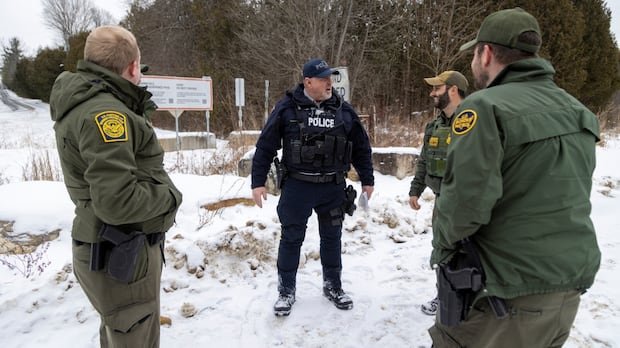The U.S. Congress faces a proposal urging the adoption of legislation that may deepen the collaboration between Canada and the United States in border enforcement, potentially allowing U.S. officers more freedom to operate within Canada. House Resolution 5518, introduced by New York Republican Rep. Nicholas Langworthy, urges U.S. Homeland Security Secretary Kristi Noem to negotiate or revise existing agreements with Canada for integrated cross-border law enforcement operations encompassing aerial, maritime, and land domains.
The bill advocates for reciprocal operation of U.S. and Canadian officers in each other’s territories to enhance border security and law enforcement cooperation. It remains unclear whether U.S. officers could operate in Canada unaccompanied by Canadian officials. The bill’s co-sponsors include 13 Republican House members, led by Rep. Elise Stefanik, a close ally of President Donald Trump.
Langworthy’s bill coincides with the introduction of another bill, H.R. 5517, aimed at enhancing the requirement for Homeland Security to update congressional committees on the border threat analysis with Canada. Both bills are under committee review.
The push for increased integration comes amid growing collaboration between Canadian and U.S. border officials. While some U.S. officers are already stationed in Canada for pre-clearance operations, Langworthy’s bill could significantly expand their operational scope in Canada. Public Safety Minister Gary Anandasangaree’s office refrained from commenting on Langworthy’s bill, emphasizing that they await Congress’s deliberation on the matter.
The Department of Homeland Security’s stance on Langworthy’s bill remains undisclosed. However, FBI Director Kash Patel’s recent testimony highlighted a rise in known or suspected terrorists entering the U.S. from Canada, prompting a commitment to bolster resources for border surveillance.
Efforts towards greater integration between Canadian and U.S. law enforcement entities are already underway, with initiatives like the Shiprider program and plans for a North American Joint Strike Force targeting organized crime. Former CBSA vice-president Denis Vinette views Langworthy’s bill as part of a broader trend towards border integration post-9/11, emphasizing the need for clear agreements to navigate jurisdictional complexities.
While the bill has garnered mixed reactions, experts like Kelly Sundberg, a former CBSA officer, view it positively for combatting illicit activities. Sundberg and others stress the importance of maintaining sovereignty and accountability in any cross-border law enforcement arrangements. Legal expert David Fraser underscores the necessity of clear agreements to manage potential conflicts between Canadian sovereignty and U.S. law enforcement operations.


